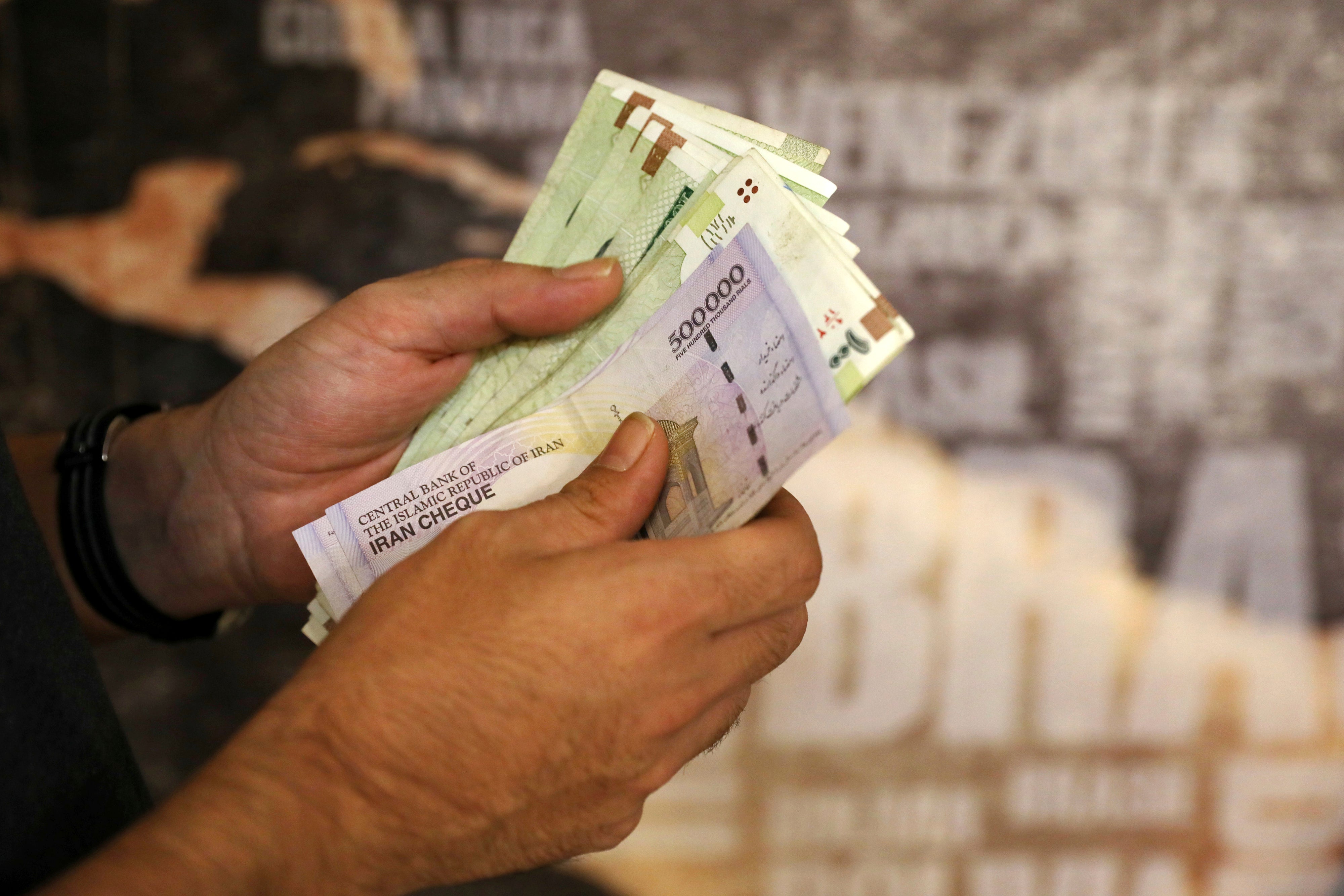Iran dismisses US efforts for UN sanctions as currency drops
Iran dismissed U.S. efforts to restore all U.N. sanctions on the country as mounting economic pressure from Washington pushed the local currency down to its lowest level ever on Sunday

Your support helps us to tell the story
From reproductive rights to climate change to Big Tech, The Independent is on the ground when the story is developing. Whether it's investigating the financials of Elon Musk's pro-Trump PAC or producing our latest documentary, 'The A Word', which shines a light on the American women fighting for reproductive rights, we know how important it is to parse out the facts from the messaging.
At such a critical moment in US history, we need reporters on the ground. Your donation allows us to keep sending journalists to speak to both sides of the story.
The Independent is trusted by Americans across the entire political spectrum. And unlike many other quality news outlets, we choose not to lock Americans out of our reporting and analysis with paywalls. We believe quality journalism should be available to everyone, paid for by those who can afford it.
Your support makes all the difference.Iran dismissed U.S. efforts to restore all U.N. sanctions on the country as mounting economic pressure from Washington pushed the local currency down to its lowest level ever on Sunday.
Iran’s currency dropped to 272,500 to the U.S. dollar at money exchange shops across Tehran.
The rial has lost more than 30% of its value to the dollar since June as sweeping U.S. sanctions on Iran continue to crush its ability to sell oil globally. Iran’s currency was at 32,000 rials to the dollar at the time of Tehran’s 2015 nuclear deal with world powers, which was signed by the Obama administration but which the Trump administration pulled the U.S. out of.
As the currency plummeted, Iran’s foreign ministry spokesman Saeed Khatibzadeh slammed the Trump administration's declaration Saturday that all U.N. sanctions against Iran have been reimposed because Tehran is not complying with the nuclear deal.
“Tehran’s message to Washington is clear: return to the international community, return to your commitments and stop bullying so the international community will accept you,” he said.
The U.S. move has been rejected as illegal by most of the rest of the world and sets the stage for an ugly showdown at the world body ahead of its annual General Assembly this week.
Even before the U.S. declaration, other Security Council members had vowed to ignore it. They say the U.S. lost legal standing to invoke snapback sanctions when President Donald Trump withdrew from the nuclear deal in 2018 and began reimposing U.S. sanctions on Iran.
France, Germany and Britain issued a joint statement Sunday reiterating that they contest the legal basis of the Trump administration's bid to activate the “snapback” sanctions mechanism because the United States withdrew from the nuclear accord.
The statement said “it follows that any decision or action taken on the basis of this procedure ... are without effect in law.” The three countries stressed they remain determined to preserve the nuclear deal with Iran.
The Iranian government spokesman said the snapback sanctions have only happened in “the fantastical world” of the Trump administration. He said the U.S. stands on the wrong side of history.
"They are attempting to make everyone believe it, but nobody is buying it except for themselves,” Khatibzadeh said during his weekly press briefing on Sunday.
“It is a television show whose sole presenter, viewers and those cheering it on are Mr. Pompeo himself and a handful of others,” the spokesman said, referring to the U.S. secretary of state.
The White House plans to issue an executive order on Monday spelling out how the U.S. will enforce the restored sanctions, and the State and Treasury departments are expected to outline how foreign individuals and businesses will be penalized for violations.
Tensions are running high between Iran and the U.S., particularly since a U.S. strike in January killed Iranian Revolutionary Guard Gen. Qassem Soleimani in Baghdad, prompting Tehran to retaliate with a ballistic missile strike on Iraqi bases housing American troops.
___
Associated Press correspondent Elaine Ganley in Paris contributed to this report.